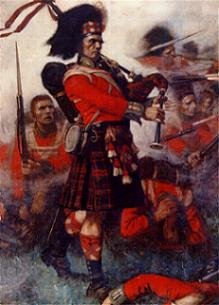Charles Courtney Appleyard
Charles Courtney Appleyard was married with three children and living in Carlton when the war began.
Born and growing up in Binginwarri, the carpenter enlisted on July 15,
12 months after the war had started and 3 months after his brother Gordon had
landed on the shores of Gallipoli. On
the enlistment forms, Charles put his age as 28, however, birth records have
Charles’ birth date as 1881 which would have made him 33 at the time.
The assassination of Archduke Franz Ferdinand Sarajevo in
1914 had begun a chain of events that would launch the war that, in the
beginning, the general public believed would only last a few months. With the thought of adventure and maybe motivated by the landing at Gallipoli,
1915 saw the highest number of enlistments with 165, 912 Australian men signing
up to fight for their King and country. Four of these men were the sons of Jane and George
Appleyard, joining their brother Gordon who had enlisted the year before and was one of the first Australian soldiers to land on the shores of Gallipoli.
Charles would be deployed to the 23rd Battalion, meeting
the group in Egypt before landing in France on April 5. Promoted to Lance Corporal by August and later
in the same month to Sergeant after the death of his commanding officer, Charles
made a deep impression on his fellow soldiers and superiors.
Fighting at Pozieres, and at Moquet Farm on the Western Front,
Charles never got to see his brother Gordon even though their battalions were
fighting in the same battles. On
November 7, 1916, Charles would be shot in the right shoulder and transferred
to the 36th casualty clearing station. 9
days later, he would die from his wounds. Three months after his brother had also been killed in battle.
Charles’ wife Rose would receive the cable advising of her
husband’s death on November 22 with a final, formal notification received five
days later. Rose would also receive a letter from a former Commander of Charles' as news of his death spread.
“It was in the line at
Pozieres that I knew him well, at a time all men learn to know each other
intimately. He was one of the bravest
men. Not only had he courage but that
other most necessary quality of a good soldier – ability to use his head in the
presence of great danger. He was so
fearless that men used to say he had no nerve which is only another word for
saying he had self-control. When he left
the Somme and went north, he was my Sergeant on an outpost duty. A position of sore danger, and with 12 men,
he held a position for a week 500 yards in from of our trenches. He was
selected as the most reliable Sergeant in the company…”
It is this bravery that would see Charles receive the esteemed
Military Medal. During the fighting at
Pozieres during August 4th and 5th, Charles was recognised for
‘gallant reconnaissance in daylight of the enemy’s trench, returning valuable
information.’
Never to return to the rolling hills of South Gippsland, Charles’
family may have felt some comfort when
they found that his final resting place at Heilly Station Cemetery in Mericourt L’Abbe would be only 19 kilometres from his
brother Gordon.
“…of his private life
I knew nothing, but if it was equal to his soldier’s career, you have lost an irreplaceable companion.” L G Short, 23rd
A.I.F
Born: 1881, Alberton, Victoria
Died: November 7, 1916 Mericourt, France
Relationship to Peter Appleyard: Grandson
Image Source: Merle Joyce, daughter of Charles, as printed in Lowlands by Dianne Appleyard
Headstone images from Mericourt provided with thanks to David Greenhall, descendant of Peter Appleyard and his first wife Ann through daughter Frances.



.jpg)


Comments
Post a Comment